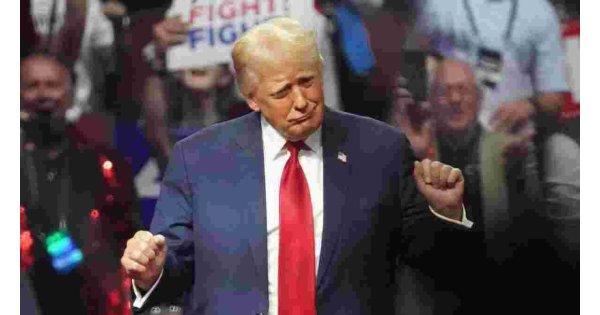Following President Biden's decision to step down from his reelection campaign and endorse Vice President Kamala Harris as the Democratic nominee for president, Harris' role in immigration policy has come under intense scrutiny. Soon after Mr. Biden's announcement, Republicans were quick to blame Harris for the challenges faced by the Biden administration at the U.S.-Mexico border, where record levels of illegal crossings have been reported over the past three years. Former President Donald Trump, in a phone conversation with CBS News, accused Harris of overseeing the "worst border ever" as the so-called "border czar," a title often used by her Republican critics.
As Harris gears up for her almost-certain presidential campaign, she will undoubtedly face further criticism over the Biden administration's handling of immigration, an issue that remains a top concern for American voters. While Harris does have a role in immigration within the Biden administration, her responsibilities in this area are often misrepresented.
So, what exactly is Harris' role in immigration? In March 2021, as the Biden administration grappled with an increase in illegal crossings at the southern border, Mr. Biden assigned Harris to lead a diplomatic effort to tackle the "root causes" of migration from Guatemala, Honduras, and El Salvador. These root causes include poverty, corruption, and violence, which have plagued the region known as Central America's Northern Triangle—a primary source of migration to the U.S.-Mexico border in the last decade.
It is important to clarify that Harris was not appointed as the administration's "border czar," nor was she tasked with overseeing immigration policy and enforcement at the U.S.-Mexico border. Those responsibilities primarily fall under the jurisdiction of Homeland Security Secretary Alejandro Mayorkas and his department, which oversees the country's main three immigration agencies, including Customs and Border Protection. The only position resembling a "border czar" in the Biden administration was briefly held by Roberta Jacobson, a veteran diplomat who served as the coordinator for the Southwest border until April 2021.
Harris' primary focus in her immigration role has been on encouraging private-sector investment in Central America and promoting democracy and development through diplomatic channels. In March of this year, the White House announced that Harris had secured commitments from the private sector totaling over $5 billion to foster economic opportunities and reduce violence in the region.
U.S. officials have long recognized that improving conditions in migrants' home countries is a long-term strategy to reduce migration. The Biden administration's "root causes" framework acknowledges that the "systemic change" they envision for Central America will take time.
There are valid questions about the effectiveness of Harris' work on immigration. Prior to the COVID-19 pandemic, the majority of non-Mexican migration to the U.S. southern border originated from the Northern Triangle countries. While it made sense for the administration to focus on addressing the root causes of migration in 2021, migration flows have since shifted significantly. Currently, record numbers of migrants are arriving from countries outside of Central America, including Cuba, Colombia, China, Ecuador, and Venezuela.
For instance, in fiscal year 2023, apprehensions of migrants from Guatemala, Honduras, and El Salvador by Border Patrol accounted for only 22% of all crossings, compared to 41% in fiscal year 2021. On the other hand, the administration can point to a notable decrease in illegal crossings at the southern border by migrants from these three countries every year since 2021.
While Harris has faced criticism primarily from Republicans, her immigration efforts have also been scrutinized by some on the left. During her visit to Guatemala in June 2021, Harris' statement telling potential migrants, "Do not come," sparked backlash from progressives and migrant advocates.
As the second-highest-ranking member of the Biden administration, Harris will also likely face questions about the record-high levels of unlawful border crossings in 2021, 2022, and 2023. However, it is worth noting that these crossings have plummeted in 2024, reaching a three-year low in June, following Mr. Biden's executive order restricting asylum for most migrants.
The facts about Kamala Harris' role on immigration in the Biden administration
In her immigration role, Vice President Kamala Harris has mainly focused on convincing companies to invest in Central America and promoting democracy and development.





